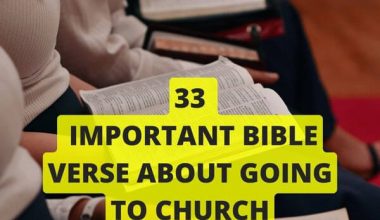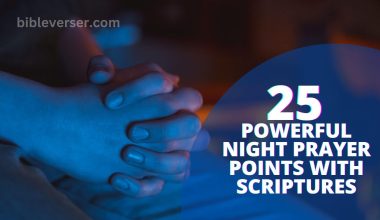Certain individuals believe that dreams are divine messages, while others believe that dreams are the brain’s method of analyzing information and occurrences.
The Bible does, however, contain a great number of dreams that go beyond simple visions or coincidental events.
Numerous chapters and events in the Bible refer to dreams as they provide direction and insight into the best choices or courses of action.
In a lot of dreams, one may see angelic figures or even the Lord himself imparting life-changing knowledge. Alternatively, other dreams illustrate exactly what can go wrong if one chooses to walk outside of God’s will.
21 Dreams In The Bible
Dreams are important, and people frequently believe that dreams are how God speaks to his people.
Dreams are employed in the biblical text to reveal divine will, give guidance, deliver messages, and provide prophetic insights.
Types of Dreams in the Bible
According to the Bible, there are three primary categories of dreams:
Dream with message
You don’t need to interpret this dream because God is speaking to you plainly at this point. Joseph’s dream in which God asked him to wed Mary illustrates this. That parallel doesn’t exist. God talks plainly, and it’s quite apparent.
simple symbolic dream
God gives you immediate meaning when He utilizes symbols that you are familiar with. This kind of dream can be seen in Joseph’s dream, where the sun, moon, and stars all bow down to him. This is how you grasp the language that the Lord uses to communicate with you.
Difficult symbolic dream
In this kind of dream, God employs symbols that other people can comprehend. You need assistance, like the dreams of Pharaoh
21 Dreams in the Bible and Their Meaning
Dreams in the Bible hold a profound significance, serving as a unique and divine avenue through which God communicates with individuals.
The warning given to Abimelech (Genesis 20:3–7)
The Bible mentions dreams for the first time in this passage. God appears to this king in a dream and speaks to him. In this dream, God and Abimelech talk, and Abraham pretends that Sarah is his sister.
God informed Abimelech in the dream that Sarah was Abraham’s wife and that touching her would have negative consequences for both him and his family. He instructed him to give Sarah back to Abraham. This dream was meant to warn Abimelech of the fraud so he could decide what was best for Sarah
Jacob’s ladder (Genesis 28:12)
Jacob was en route to locate a spouse. He saw God standing above a ladder that reached into heaven in his dream. In addition to giving him and his offspring the identical promise that God gave Abram in Genesis 12, God also spoke and personally predicted that He would lead Jacob back to this land in safety.
This is an encouragement for Jacob to receive directly from God, rather than through his father. Jacob will come home, and his descendants will own the land of Canaan according to the Lord, who is at the top of the ladder.
Jacob’s Call Home (Genesis 31:10–13)
Laban had been abusing Jacob’s assistance for many years while he was living with his uncle in Haran. Jacob shared a dream he’d had in which he’d seen the male speckled goats engaging in mating behavior.
Then, after reminding Jacob of His blessings, God told him it was time for him to return to his native country.
When Jacob carried out the plan, it brought him great prosperity. Following this dream, Jacob obeyed the instructions and gathered his wives and animals to leave Haran.
Laban’s warning (Genesis 31:24)
Laban was pursuing Jacob furiously, as he had run away following the last dream. In a dream, God spoke to him and cautioned him against letting his upcoming contact with Jacob turn negative.
The purpose of this dream was to save Jacob from harm and stop Laban from doing something he could come to regret. Laban followed the dream’s advice. Despite their intense debate, he and Jacob decided not to hurt one another in the end.
Joseph’s grain into Sheaves and stars(Genesis 37:5–8)
In his dream, Joseph saw all of his brothers’ sheaves in the field bow down to his own.
confirming a facet of Joseph’s destiny and calling in the future. At the time, Joseph’s brothers were annoyed about the dream. But it was fulfilled years later (Genesis 42:6-9).
It was the issue of grain (which Joseph subsequently had plenty of but his brothers did not) that led them to come and bow down to him years later in Egypt.
Joseph dreamed that the sun, moon, and eleven stars bowed down to him. ( Genesis 37:9-10)
After that, Joseph dreams again. This time the eleven stars, the sun, and the moon bow down to him. It irritates both his father and brothers.
to validate his calling and destiny from the prior dream. His parents, symbolized by the sun and moon, were also included in this dream’s scene!
The cupbearer’s grapes (Genesis 40:9–15)
Joseph deciphered the man’s dream while they were both in prison. In the dream, He squeezed grapes from three branches that bore grapes into Pharaoh’s cup in his dream.
This was ominous news regarding the impending release of the cupbearer from prison and his appointment to his previous position.
Three days later, the cupbearer was back in his old position (Genesis 40:20–21)
Joseph had deciphered the dream with accuracy. The three grape branches stood for three days until this dream would come true, as the cupbearer would have typically brought wine to Pharaoh every day.
The baker’s baskets (Genesis 40:16–19)
Joseph deciphered the dream for this man, who was likewise incarcerated. Three baskets of bread appeared to him in his dream. It was the top basket on his head from which the birds were feeding.
His impending death was hinted at in this way. In addition, it provided a second line of evidence supporting Joseph’s accurate interpretation of his dream.
The dream came true precisely as Joseph had interpreted it when the head baker was hung three days later.
Pharaoh’s cows (Genesis 41:1-4)
In his dream, seven plump, healthy cows emerged from the Nile and browsed the meadow, only to be devoured by seven skinny cows.
This dream served as a warning to Pharaoh, the king of Egypt, about an impending terrible famine and its timing, allowing him to make preparations.
Seven years of plenty were symbolized by the seven plump cows, and seven years of famine, symbolized by the seven skinny cows, meant that they would have to eat food stores from the first seven years.
This came to pass precisely as Joseph had predicted. During this famine, this dream prevented starvation throughout Egypt and the neighboring areas.
Pharaoh’s grain (Genesis 41:5-7)
In his dream, he saw seven plump ears of grain appear, followed by seven skinny ears that engulfed the fat ears.
The preceding dream’s meaning remains unchanged. Seven years of abundant crop yield were symbolized by the plump ears of grain, whereas seven years of hunger were represented by the thin ears of grain.
Because Pharaoh followed Joseph’s instruction, the nation was spared starvation, and the dream’s message was realized.
The runaway barley loaf (Judges 7:10–15)
The Israelites, led by Gideon, were getting ready to battle the Midianites, but they faced overwhelming odds. Gideon heard a guy recounting this dream when God commanded him to enter the enemy camp. A loaf of grain fell into Midian’s camp and destroyed the tent.
This dream was intended primarily to bolster Gideon’s confidence, but it also intended to terrorize the Midianite camp.
With renewed confidence, Gideon executed the offensive strategy that God had given him, and they triumphed precisely as the dream had predicted. This result was both predicted and made possible by the dream.
Solomon’s blank check (1 Kings 3:5–15)
In a dream, God made himself known to Solomon and made all of his wishes come true. To govern Israel in a just manner, Solomon prayed for discernment and wisdom.
God responded favorably, promising to satisfy his request in addition to bestowing upon him honor and wealth.
Early in Solomon’s rule, all that was prophesied in this dream was fulfilled, confirming his position as king and preparing him for the job.
A young woman searching for her true love (Song of Solomon 5:2-8)
These chapters contain fragments of the soon-to-be bridegroom narrating her nightmares and dreams jumbled with actual interactions and experiences.
The bride-to-be’s dream provides insight into her innermost feelings and thoughts. It highlights the intensity of her love for her fiancé and her desire for their marriage to be consummated. It also exposes some of her anxieties.
Nebuchadnezzar’s statue (Daniel 2)
He saw a vision of a massive statue with a head made of gold, arms, and breasts made of silver, thighs, and belly made of bronze, legs made of iron, and feet made of clay and iron. When a stone hit the statue, it turned into a mountain that covered the whole planet.
Daniel interpreted the dream that the kingdoms that would govern the globe from that point on until the arrival of Jesus and the kingdom of God were predicted in this dream, which had prophetic significance for world history.
Daniel deciphered the dream. The king was instantly overcome with amazement and elevated Daniel to the position of ruler over the entire region.
Nebuchadnezzar’s Tree (Daniel 4)
In his dream, a massive, exquisite tree that provided refuge to numerous creatures was chopped down to a stump. Then, it appeared to be a man who had received an order to live for a while like an animal.
This dream was to forewarn Nebuchadnezzar that, should he refuse to change, he would endure seven years of humbling during which he would eat grass like cattle until he acknowledged God as the Almighty
This dream was interpreted by Daniel, and it transpired precisely as Daniel had predicted
Daniel’s beasts (Daniel 7)
In Daniel’s dream, a sequence of four creatures with different horns emerged from the sea. A throne, the Ancient of Days, volumes being opened, and “One like a Son of Man” appeared to him in the midst of all of this. The interpretation was then given to him by someone in the dream.
This dream warned them of what to expect and provided a prophetic timeline from that point in time to the return of Jesus. Knowing that everything was part of a larger scheme would have given the Jews and Jesus’s disciples comfort throughout their time of persecution.
Joseph’s message ( Matthew 1:18–24)
Joseph sought to call off their upcoming marriage since Mary had become pregnant via the work of the Holy Spirit. In a dream, an angel appeared to him to inform him that Mary was telling the truth and that he ought to wed her.
To support Joseph’s calling to wed Mary and raise Jesus as his earthly father. He married her, doing what the angel had advised. In addition to taking on the duty that was his destiny, he was able to defend and assist Mary in raising Jesus.
Magi’s warning (Matthew 2:12).
When the Magi discovered the “Messiah,” King Herod had instructed them to report to him his location. All we know is that they were warned in a dream not to go back to Herod once they found Jesus.
To prevent them from unintentionally endangering the infant Jesus. The dream’s message was that they returned home in a different manner.
The young Jesus is visited by the wise men. In a dream, God warns them not to go near King Herod when they go back home because the envious monarch intends to murder the boy.
Joseph’s warning (Matthew 2:13)
In a dream, Joseph saw an angel telling him that Herod was going to attempt to kill the baby Jesus. He received explicit instructions from the angel to quickly leave Bethlehem and bring the family to Egypt.
To allow Joseph to prevent Herod from killing Jesus. He obeyed and brought the family to Egypt.
They departed in the middle of the night, this marks the second documented instance in which Joseph saw an angel in a dream. This appears to be the main manner in which Joseph was instructed by God.
Joseph’s Return to Nazareth. (Matthew 2:19-22)
In one dream, an angel warned Joseph it was safe to return to Israel with his family. In another dream, the angel gave Joseph more warnings and detailed instructions to travel to Galilee, to allow Joseph to keep the family safe and to inform him when it was safe to go back to Israel.
Because Joseph obeyed, the family was protected from violence and was allowed to leave Egypt. God allowed a returned return from Egypt when Herod died.
However, not through Judea. But God forbids Joseph from entering Herod’s son’s domain because he is now in authority.
Pilate’s wife’s nightmare (Matthew 27:19)
Nearing the end of his life, Jesus had this dream. For Pilate’s judgment, Jesus had come in. Pilate’s wife was persuaded that Jesus was innocent in a disturbing dream she had the previous night. To let him know, she wrote Pilate a note.
The dream appeared to not affect the outcome, so it’s intriguing to consider why it happened. It could have been just for the record, to attest to Jesus’ innocence.
While Pilate did attempt to grant Jesus a way out, in the end, he decided against pursuing justice in favor of appeasing the populace’s wishes in the interest of peace.
Significance of Dreams in the Bible
Here are a few significant dreams from the Scripture;
Divine Interaction
The Bible describes how God spoke to people via dreams. God communicated with Abraham, Jacob, Joseph, and several prophets in the Old Testament, for instance, through dreams, offering them instructions, prophecies, and cautions
Revelation
Visions of future occurrences or revelations are referred to in the Bible as prophetic dreams. Interpretation is necessary because they frequently feature symbolic imagery. For example, the prophet Daniel saw numerous kingdoms and future events in his dreams and visions.
Caution and Counseling
There are instances in the Bible where people were warned or given counsel through dreams. To shield Jesus from King Herod’s cruelty, Joseph, Mary’s husband, for instance, got divine instructions in a dream to take Mary as his wife and escape to Egypt.
Spiritual Encounters
In the Bible, people also experienced divine experiences through dreams. Famously, Jacob dreamed of a ladder that reached heaven and saw angels coming and going, signifying God’s promise and presence.
21 Bible Verses About Dreams
Dreams are not merely random occurrences during sleep but are often portrayed as a divine channel for revelation, guidance, warnings, and messages.
Genesis 20:3 (NIV)
“But God came to Abimelek in a dream one night and said to him, ‘You are as good as dead because of the woman you have taken; she is a married woman.'”
Genesis 28:12 (NIV)
“He had a dream in which he saw a stairway resting on the earth, with its top reaching to heaven, and the angels of God were ascending and descending on it.”
Genesis 37:5 (NIV)
“Joseph had a dream, and when he told it to his brothers, they hated him all the more.”
Genesis 41:15 (NIV)
“Pharaoh said to Joseph, ‘I had a dream, and no one can interpret it. But I have heard it said of you that when you hear a dream you can interpret it.'”
Matthew 2:12 (NIV)
“And having been warned in a dream not to go back to Herod, they returned to their country by another route.”
Daniel 2:19 (NIV)
“During the night the mystery was revealed to Daniel in a vision. Then Daniel praised the God of heaven.”
Joel 2:28 (NIV)
“And afterward, I will pour out my Spirit on all people. Your sons and daughters will prophesy, your old men will dream dreams, your young men will see visions.”
Matthew 1:20 (NIV)
“But after he had considered this, an angel of the Lord appeared to him in a dream and said, ‘Joseph son of David, do not be afraid to take Mary home as your wife, because what is conceived in her is from the Holy Spirit.'”
Genesis 15:1 (NIV)
“After this, the word of the Lord came to Abram in a vision: ‘Do not be afraid, Abram. I am your shield, your very great reward.'”
Daniel 1:17 (NIV)
“To these four young men God gave knowledge and understanding of all kinds of literature and learning. And Daniel could understand visions and dreams of all kinds.”
Proverbs 3:24 (NIV)
“When you lie down, you will not be afraid; when you lie down, your sleep will be sweet.”
Psalm 16:7 (NIV)
“I will praise the Lord, who counsels me; even at night my heart instructs me.”
Psalm 17:15 (NIV)
“As for me, I will be vindicated and will see your face; when I awake, I will be satisfied with seeing your likeness.”
Job 33:15 (NIV)
“In a dream, in a vision of the night, when deep sleep falls on people as they slumber in their beds.”
Matthew 27:19 (NIV)
“While Pilate was sitting on the judge’s seat, his wife sent him this message: ‘Don’t have anything to do with that innocent man, for I have suffered a great deal today in a dream because of him.'”
Psalm 4:8 (NIV)
“In peace I will lie down and sleep, for you alone, Lord, make me dwell in safety.”
Psalm 16:7 (NIV)
“I will praise the Lord, who counsels me; even at night my heart instructs me.”
Daniel 2:28 (NIV)
“but there is a God in heaven who reveals mysteries. He has shown King Nebuchadnezzar what will happen in days to come.”
Daniel 2:23 (NIV)
“I thank and praise you, God of my ancestors: You have given me wisdom and power, you have made known to me what we asked of you, you have made known to us the dream of the king.”
Matthew 27:19 (NIV)
“While Pilate was sitting on the judge’s seat, his wife sent him this message: ‘Don’t have anything to do with that innocent man, for I have suffered a great deal today in a dream because of him.'”
1 Kings 3:5 (NIV)
At Gibeon the Lord appeared to Solomon during the night in a dream, and God said, “Ask for whatever you want me to give you.”
Conclusion
It’s crucial to remember that not every dream that is reported in the Bible is regarded as a prophetic or supernatural revelation.
Certain dreams can just be the result of the dreamer’s unconscious experiences, wants, or thoughts.
Thus, the ability to differentiate between dreams that have a spiritual significance and those that are just ordinary requires comprehension and discernment







